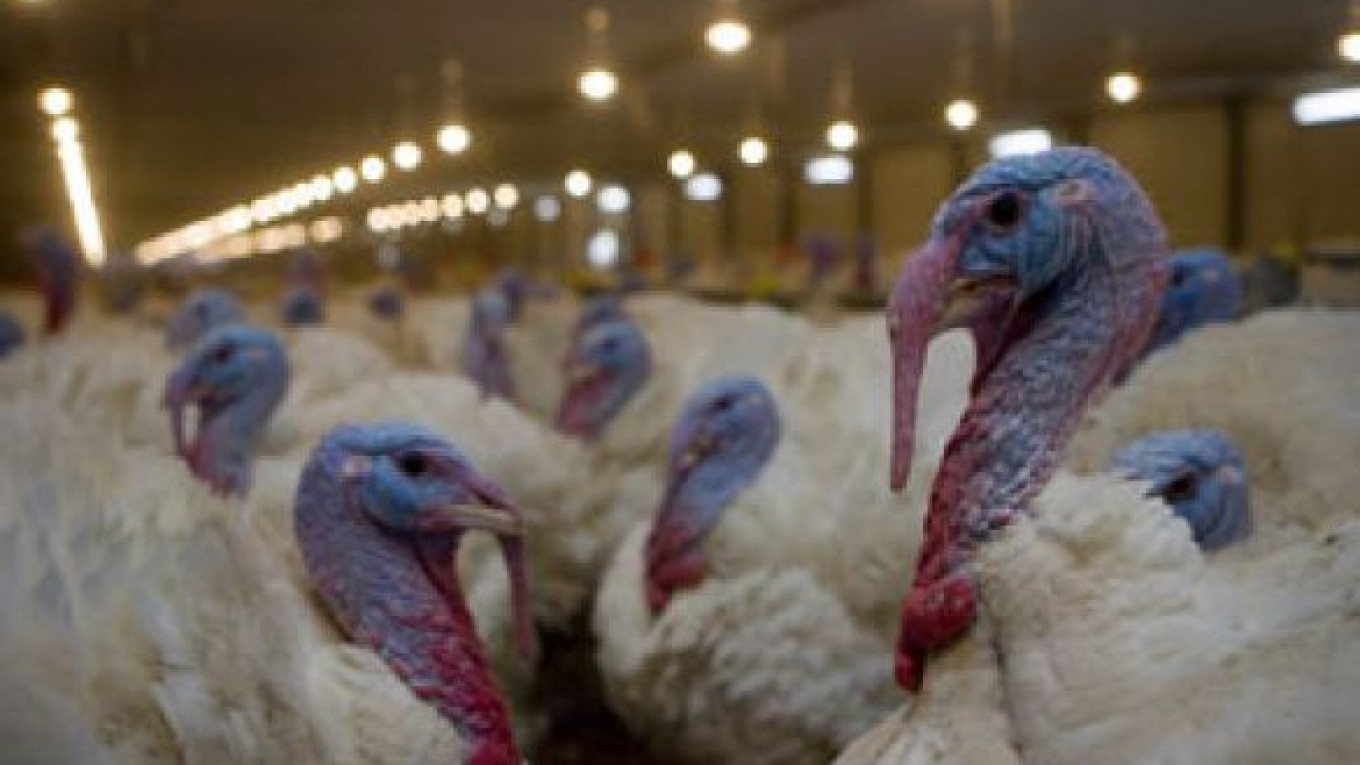U.S. producers agreed to stop using chlorine to treat poultry in order to resume supplies to Russia, Gennady Onishchenko, head of the Federal Consumer Protection Service, said Tuesday.
"We have information that U.S. factories are intensively working to give up treating poultry with chlorine-containing sanitations," Onishchenko told Interfax, adding that poultry producers said they were ready to resume exports as soon as possible.
Onishchenko said Russia would start working with certain producers after they provide official confirmation that they would supply poultry that hasn't been treated with chlorine.
Russia froze imports of U.S. poultry on Jan. 1 after long-planned regulations that forbid the import of poultry treated with chlorine — a production method used by many U.S. producers — went into effect.
Russia and the United States have already held two rounds of negotiations and created a draft of an agreement on renewed imports.
Onishchenko didn't specify which companies had agreed to the overhaul or when exports could be resumed.
Albert Davleyev, director of the Russian office of the U.S. Poultry and Egg Export Council, said he could not comment on the course of the negotiations.
The Russian Poultry Union, a nonprofit organization representing Russian poultry producers and suppliers, has no information on the U.S. companies' intention to resume supplies, said Galina Bobylyova, the union's head.
"Everything depends on how actively they will adopt [the new technology] and which technology they will implement. It will take them six months to a year," she told The Moscow Times.
She also said Russian poultry producers were increasing production volumes to fulfill the government's order to replace imports in the coming years.
Chicken is the top U.S. export to Russia, bringing in $600 million to $700 million a year to producers in 38 U.S. states, but that may change in the coming years if domestic producers edge out U.S. imports.
President Dmitry Medvedev signed a new "food security" doctrine in February, calling for, among other things, 85 percent of all meat consumed in the country to be produced domestically.
In January, Prime Minister Vladimir Putin said Russia would be able to cease all poultry imports by 2015.
Agriculture Minister Yelena Skrynnik said Tuesday that meat production would increase 5 percent this year.
The volume of domestic poultry production increased by 14.6 percent in 2009, and Russia will become a net exporter of poultry over the next 4 years to 5 years, the ministry said last month.
A Message from The Moscow Times:
Dear readers,
We are facing unprecedented challenges. Russia's Prosecutor General's Office has designated The Moscow Times as an "undesirable" organization, criminalizing our work and putting our staff at risk of prosecution. This follows our earlier unjust labeling as a "foreign agent."
These actions are direct attempts to silence independent journalism in Russia. The authorities claim our work "discredits the decisions of the Russian leadership." We see things differently: we strive to provide accurate, unbiased reporting on Russia.
We, the journalists of The Moscow Times, refuse to be silenced. But to continue our work, we need your help.
Your support, no matter how small, makes a world of difference. If you can, please support us monthly starting from just $2. It's quick to set up, and every contribution makes a significant impact.
By supporting The Moscow Times, you're defending open, independent journalism in the face of repression. Thank you for standing with us.
Remind me later.


